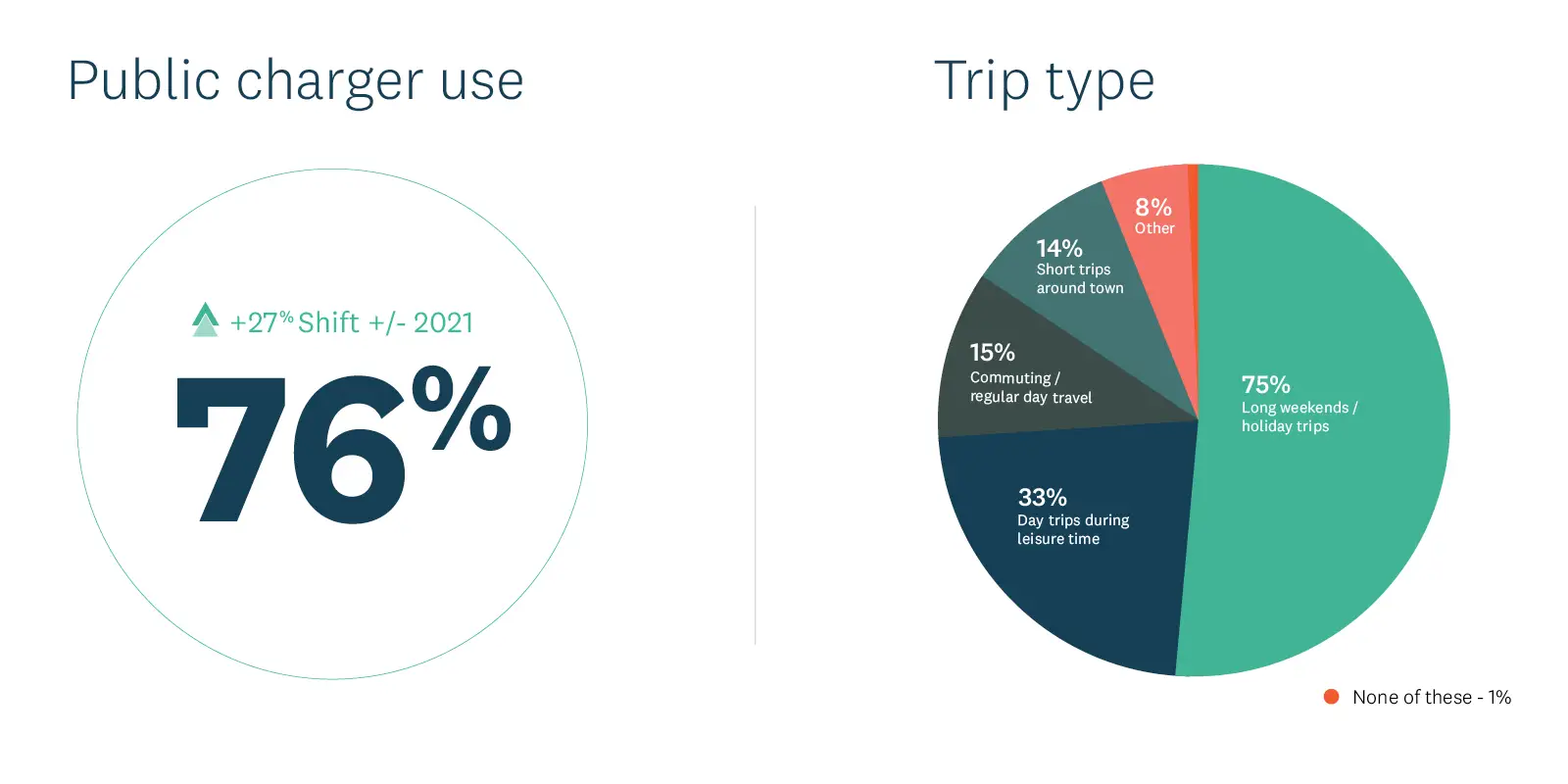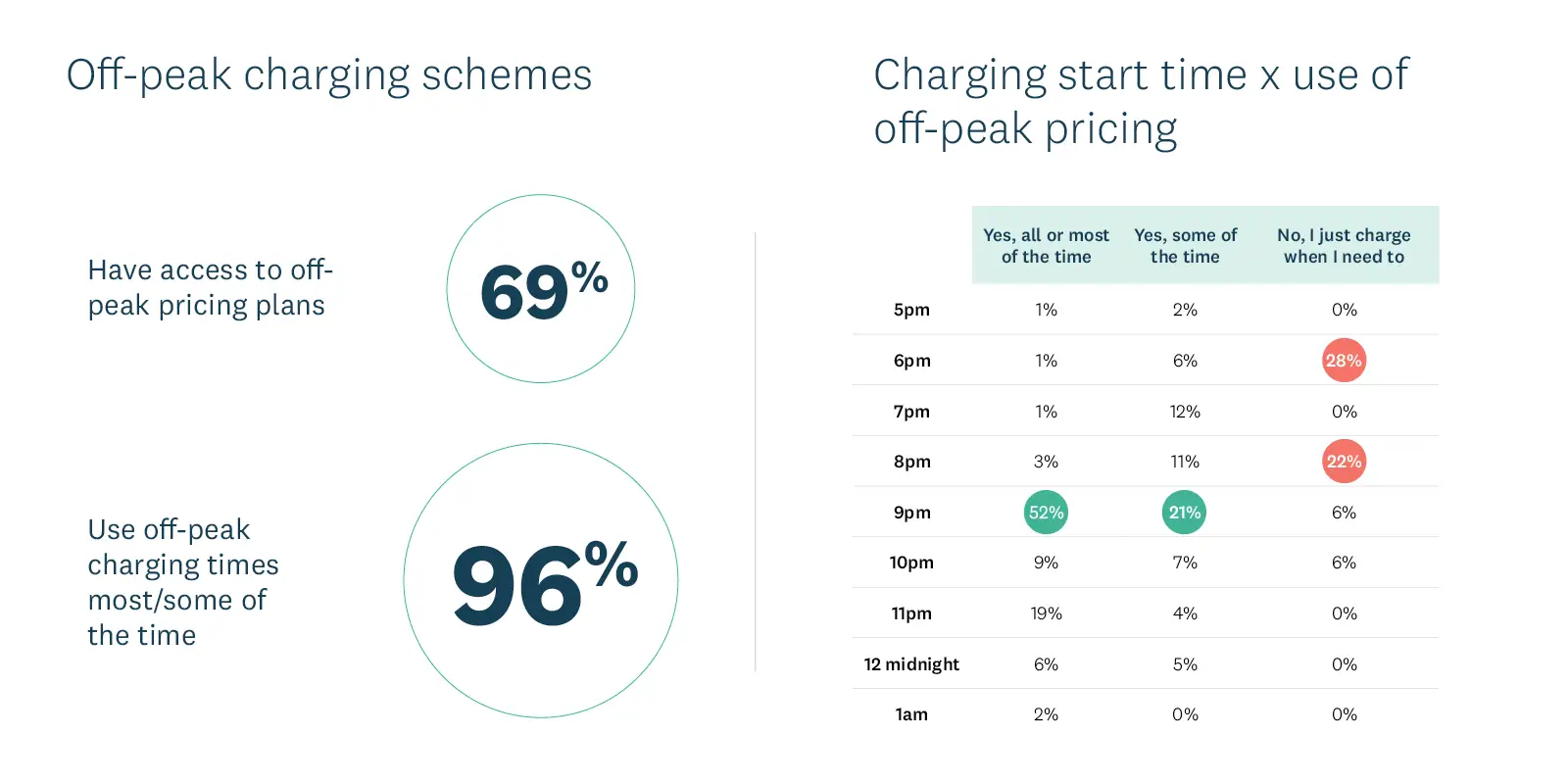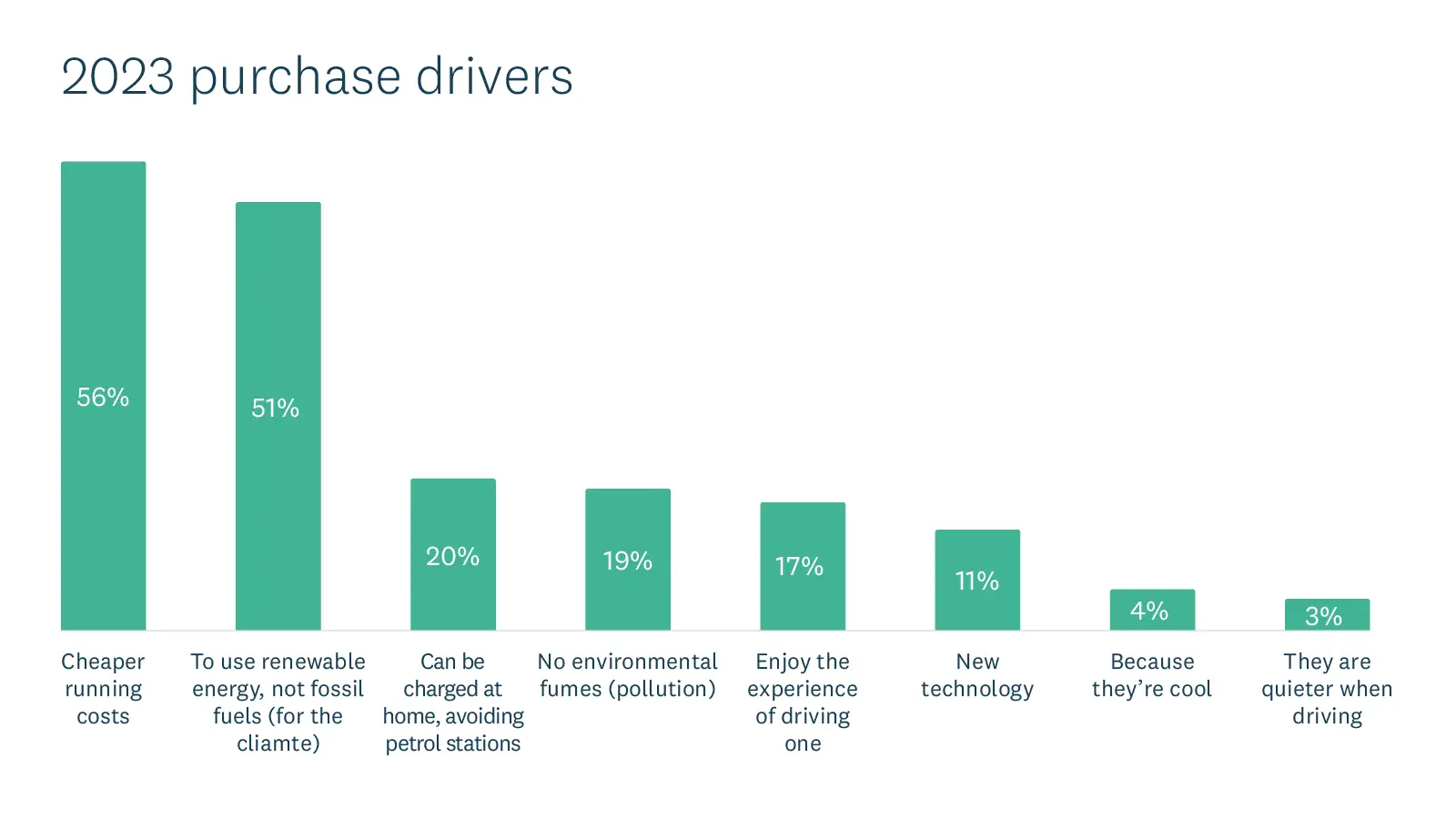EV demand is accelerating
EVs will play a key role in decarbonising the transport sector, which accounts for around half of New Zealand’s energy-related emissions.
EECA first undertook research to better understand the charging habits of EV owners in late 2021, when there were just over 37,000 electric and plug-in hybrid vehicles in use.
A new survey was conducted in February 2023, at which time over 70,000 were on our roads.
The insights into driver behaviour and the use of public EV charging will help both industry and government, plan the development of public EV charging infrastructure.
A changing EV landscape
In February EECA undertook market research on EV charging to identify needs and opportunities with the public charging network and home smart charging, to help inform our activity. There were 712 responses to the survey: 93% of respondents were BEV owners, and 12% owned a PHEV.
74% of respondents had BEVs from 2019 or newer, compared to the previous survey, in which just 30% of respondents had a newer model BEV.
The rapid growth of the EV fleet is being driven by newer models, with higher battery capacity. The longer driving ranges of these models is contributing to an increase in the use of the public charging network.
Public charging: faster, more
A significant increase in the use of public chargers has been identified – from 49% of drivers using them to 76% - mostly for longer trips. But there are still barriers to their use:
Many people feel there is a lack of public chargers throughout New Zealand (42%)
55% of respondents say having to queue for a charger stops them from using public chargers more often (Aucklanders particularly noting this is an issue)
29% say they aren’t located in convenient places where they are passing.
And there’s a clear preference for ultra-fast chargers on popular routes, e.g. at petrol stations, being most in demand, ranked top by all regions.
Charging at home: convenient, not “smart”
Just about all (97%) EV owners charge at home at least some of the time, and 80% do more than half their charging at home.
Off-peak plans are being accessed by 69% of respondents, through their home electricity retailer. This has been persuasive in encouraging people to charge at off-peak times.
However, few EV drivers use a smart charger, which could offer further savings, as well as faster, safer charging. 3-pin plugs are used by 61% of respondents to charge their EV/PHEV and 40% who aren’t using a wall mounted smart charger are happy charging as they are, indicating a need for more education. The cost of the smart charger is a barrier for 28%, the cost or difficulty associated with install is a barrier for 13%, and 8% don’t have a suitable location for a smart charger at home.
Purchase drivers: cost and emissions saving
EV owners enjoy the dual benefits of cost and emissions savings due to their vehicle choice, with 56% saying cheaper running costs and 51% saying the climate were the reasons for purchasing their EV.
The Clean Car Discount(external link) has been another driver – 62% say they purchased their EV/PHEV sooner than they otherwise would have (22% of respondents had purchased it before the discount was available).
Related work – EV charging at home and on the road
EECA is working across government and industry to expand the EV charging network. The Low Emission Transport Fund (LETF) has co-funded over 1300 chargers across the country, to the point where there is now a charger every 75km across almost the entire state highway network.
At the same time, we are working to ensure the increased demand for at-home charging will be met with a resilient supply. EECA has partnered with the Electricity Engineers’ Association (EEA) on the FlexTalk Project – which is currently trialling ‘open communication protocols’ between electricity providers (EDBs) and flexibility suppliers to actively manage the charging of EVs in real time. This is the first step in integrating demand flexibility into our distribution networks to optimise energy use.
In March, Te Manatū Waka Ministry of Transport released “Charging our Future” a draft EV charging strategy and discussion document. This outlines plans to deliver on a key action point from New Zealand’s Emissions Reduction Plan – to improve EV charging infrastructure across Aotearoa to ensure that all New Zealanders can charge where and when they need to. This includes the public charging network, boosting the use of smart chargers at home, and ensuring a resilient and secure electricity supply to meet the growing demand.
The focus of the LETF is therefore shifting to meet this new strategy, including a refreshed target of fast charging EV “hubs” with multiple chargers and amenities every 150km-200km on the state highway system, to bolster the existing network.
Read more
Consultation on “Charging our Future” is open until 11 May 2023:
Charging Our Future - Te Manatū Waka Ministry of Transport(external link)
To hear more about EECA’s work in this space:
Read the previous research:



